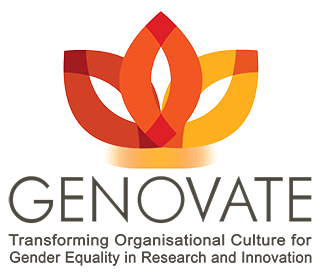 The GENOVATE Community is a platform which enables GENOVATE partners to share institutional information and case studies, and facilitates the coordination of a buddy system for bench learning.
The GENOVATE Community is a platform which enables GENOVATE partners to share institutional information and case studies, and facilitates the coordination of a buddy system for bench learning.
The GENOVATE Community consist of seven GENOVATE partner institutions; the GENOVATE International Advisory Board; key strategic collaborators and stakeholders and the general public. It is a mechanism designed to facilitate meaningful knowledge exchange across the community at local, national and international levels within each of the partner institutions’ countries, across Europe and globally.

-Research that does not consider sex and gender analysis in the scope, impact and utility of results may not be equally valid for both men and women, according to the report, Gendered Research and Innovation, which was published on 14 September. Read the news article on the web site of Research Professional https://www.researchprofessional.com/0/rr/news/europe/universities/2015/9/LERU-highlights-dearth-of-gender-data.html
-The failure of academics to account for sex and gender-based differences can undermine the quality of research and even risk lives. Link to the report by the League of European Research Universities (LERU): “Gendered Research and innovation: Integrating sex and gender analysis into the research process” on http://www.leru.org/files/publications/LERU_AP18_Gendered_research_and_innovation_final.pdf
The link to the EU Commission topics with a gender dimension on http://ec.europa.eu/research/participants/portal/desktop/en/opportunities/h2020/ftags/gender.html#c,topics=flags/s/Gender/1/1&+callDeadline/desc

This year’s honorary doctors now appointed at the LTU. Honorary degree recipients are individuals who have done outstanding academic work or in some other way promoted research at the university. Read more http://www.ltu.se/ltu/media/news/Arets-hedersdoktorer-utsedda-1.142017?l=en
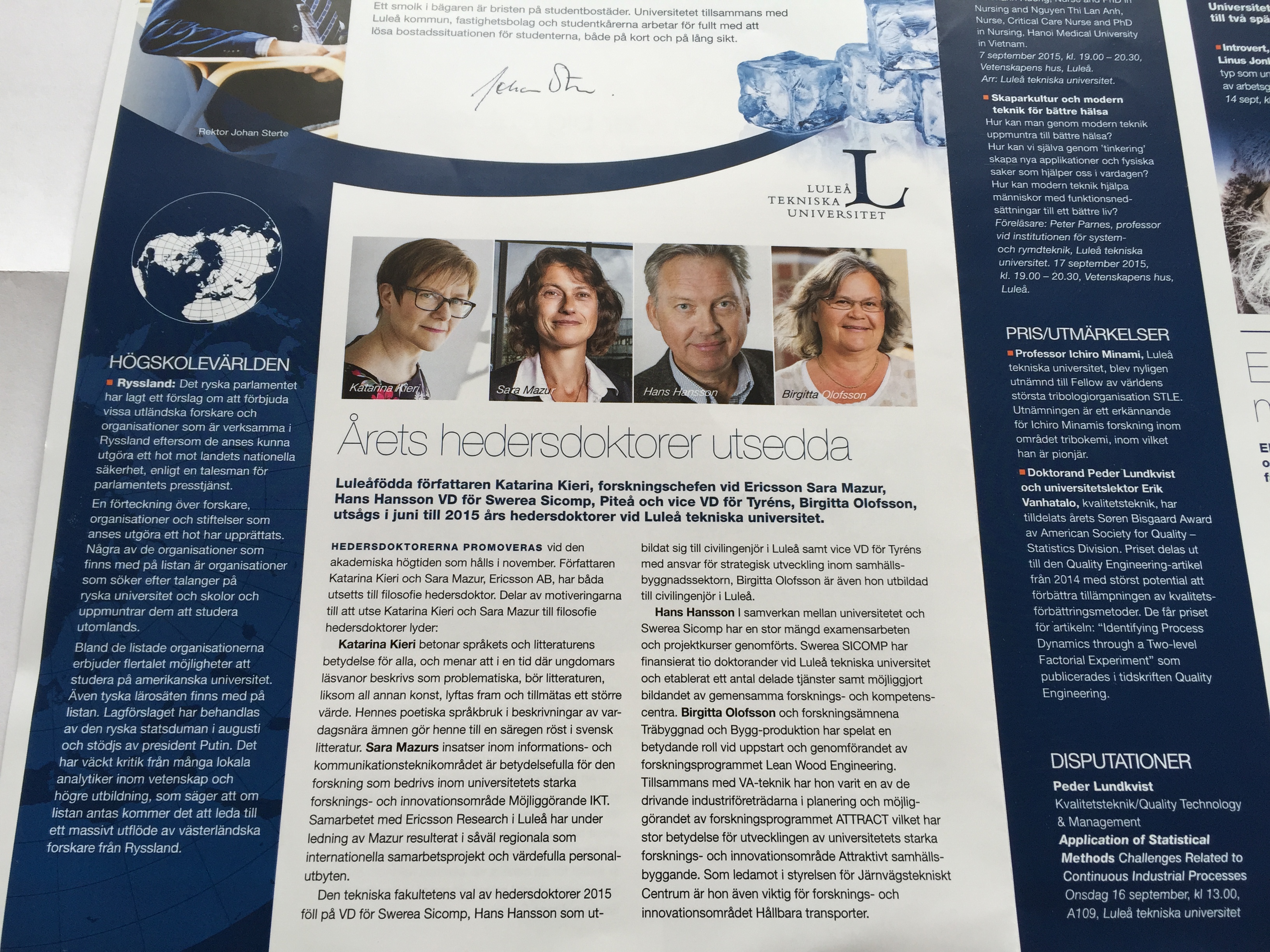

According to the Swedish law men are not allowed to be excluded form the opportunity to apply for research funding. The judgment of the Labour Court was published on July 15, 2015. What happened is that a Swedish university announced by email the possibility of applying research funding but the information was sent merely to women researchers. A male employee filed a complaint to the Equality Ombudsman and they took the matter to the Labour Court.


Genovate results presented and discussed at the EARMA 2015 conference in Leiden, Netherlands. Around 40 people participated in the discussion after the talks of Carina Mattsson and Paula Wennberg.
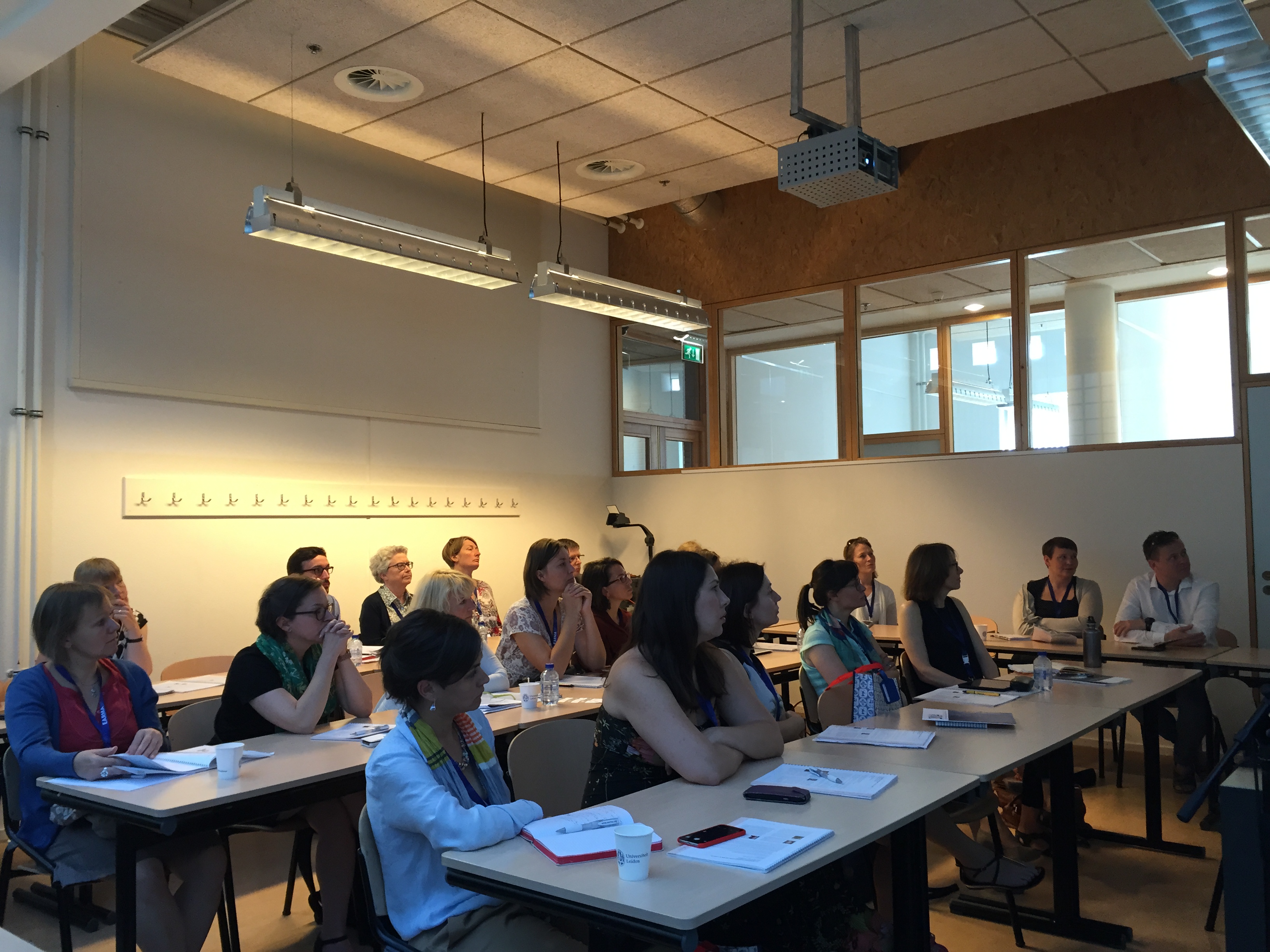
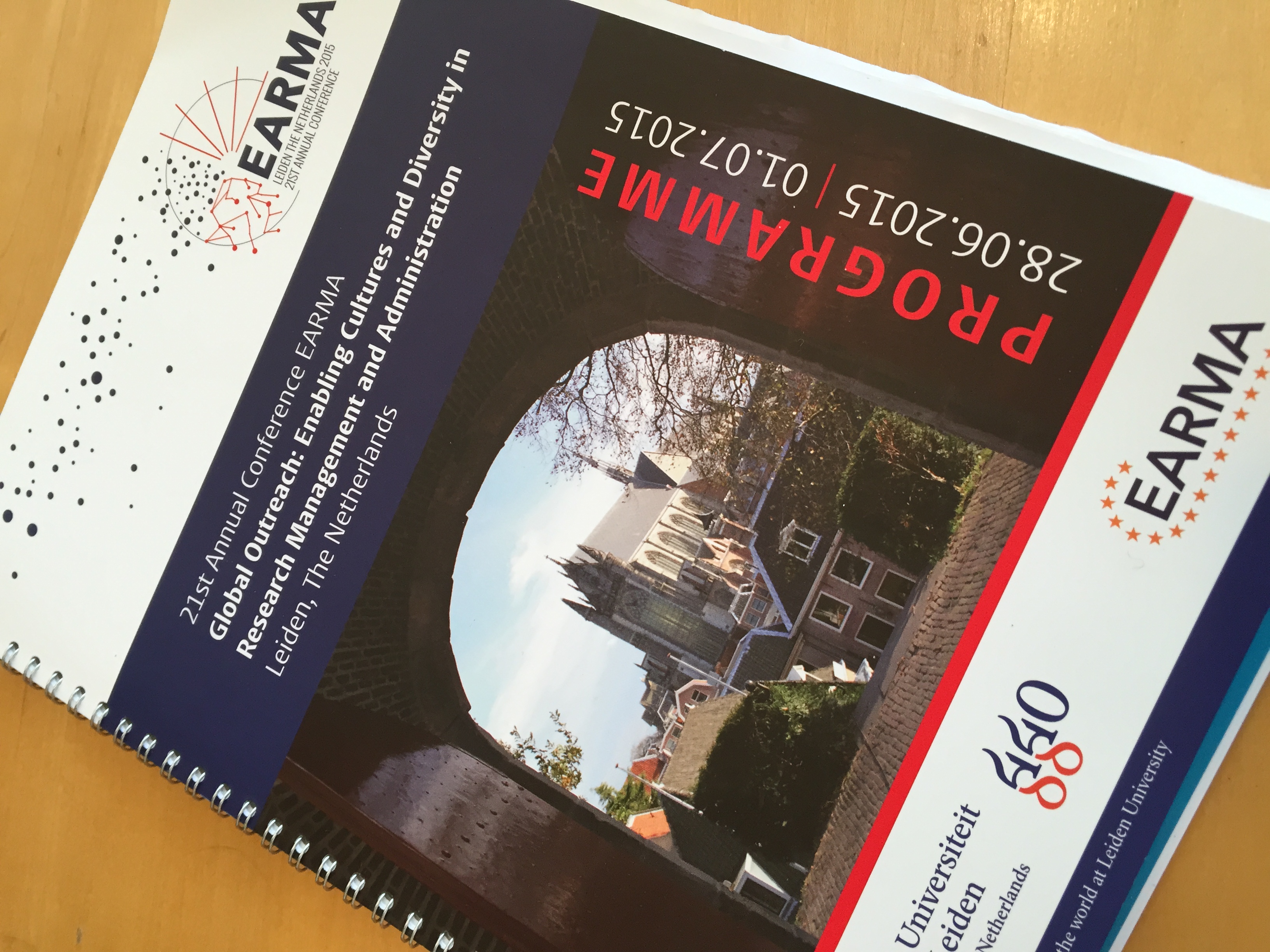
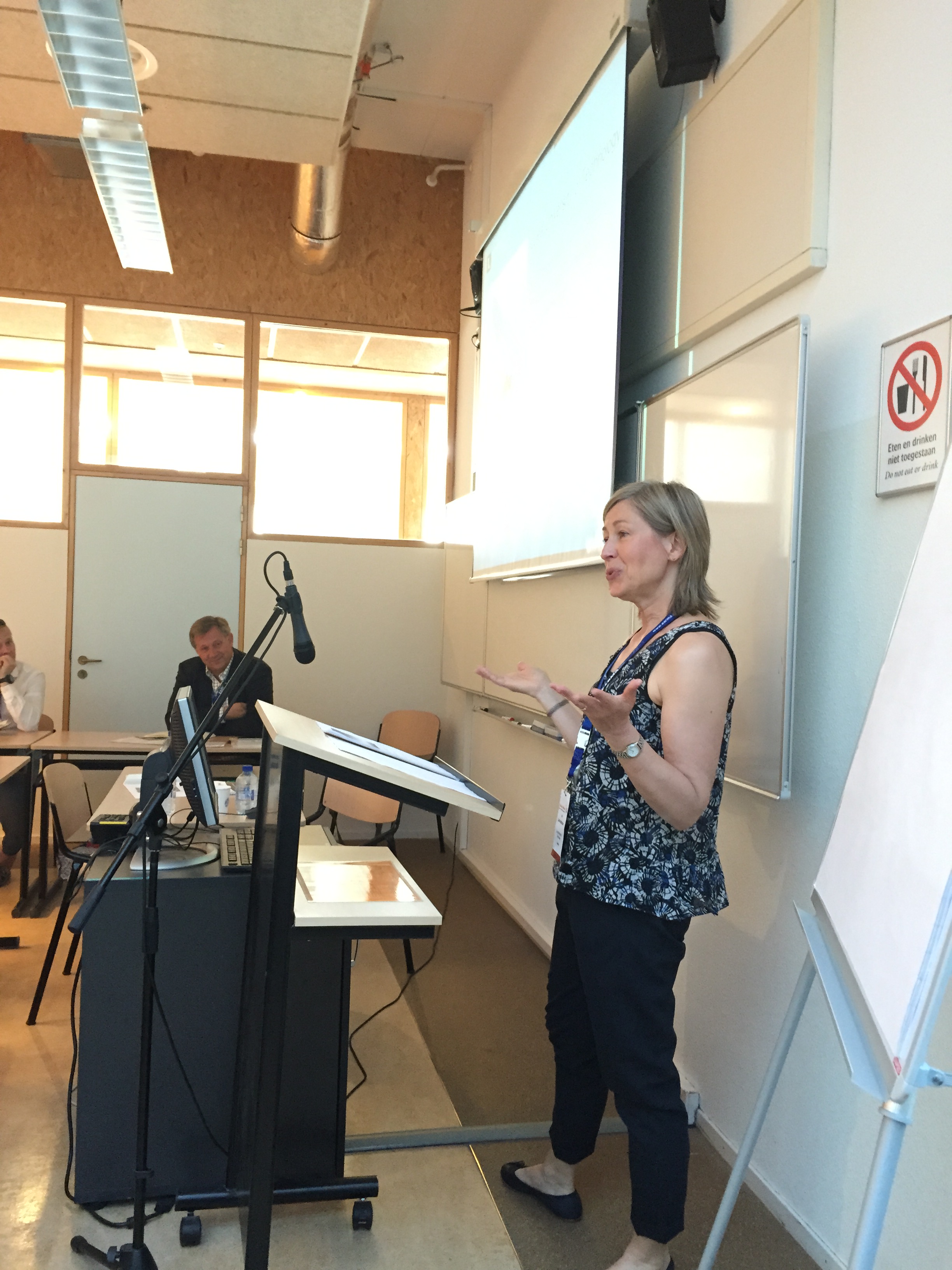

The Swedish National Mediation Office reports that the unexplained gender pay gap in Sweden was 5% in 2014.
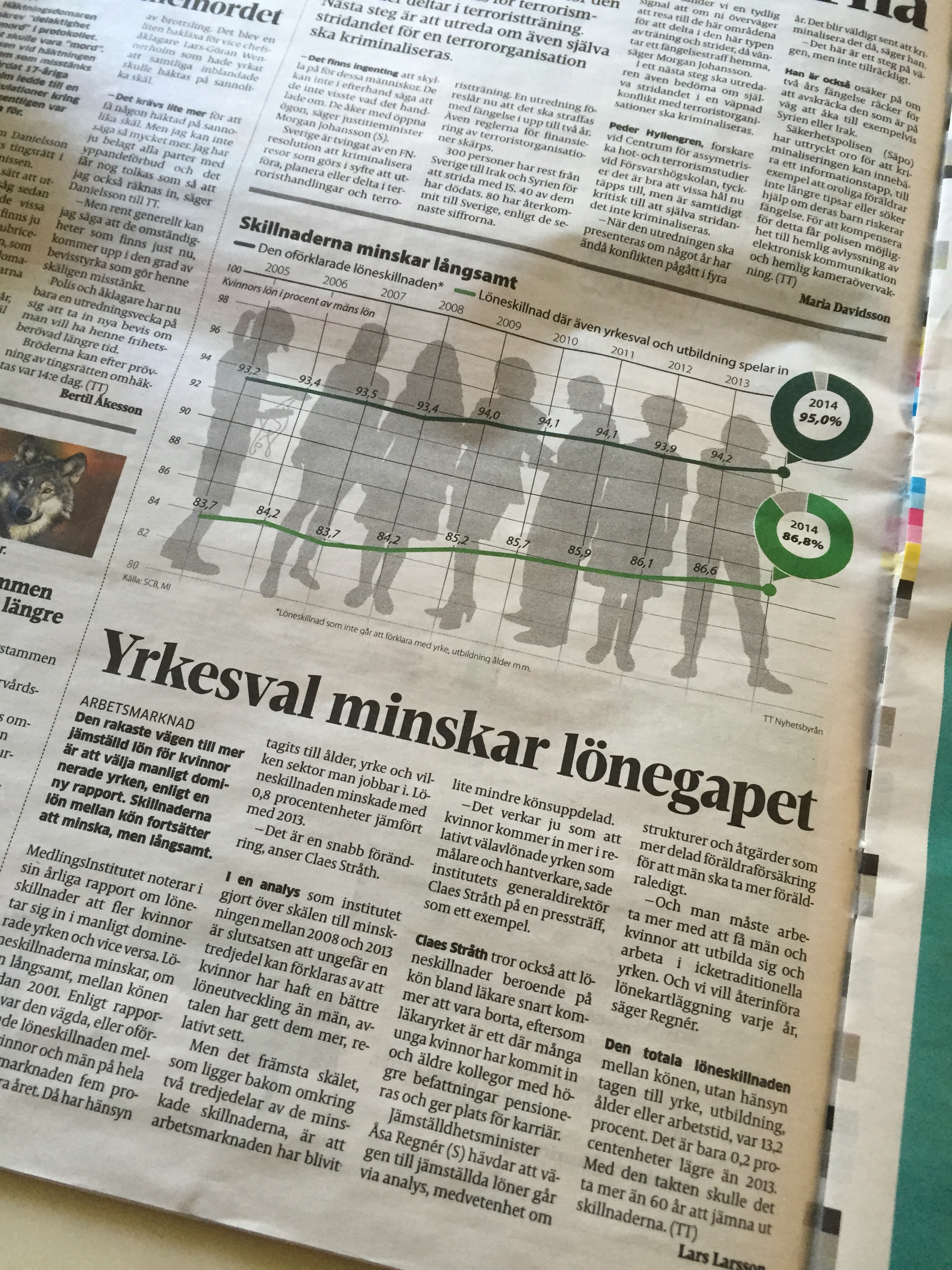

This year’s conference has the theme: Global Outreach: Enabling Cultures and Diversity in Research Management and Administration. Already 650 participants have registered to the event. Welcome to meet LTU in the Track 2 about responsible research and innovation. The LTU team will present and discuss Genovate, LTU’s Code of Practice and how it is implemented at the university. Read more about the programme http://conference2015.earma.org/programme/689/
Track 2.2 GENOVATE; boosting gender equality in academia
Chair: Olaf Svenningsen , University of Southern Denmark, Denmark
Paula Wennberg, Centre for Distance-spanning Technology, Luleå University of Technology, Sweden
Carina Mattsson, HR Department, Luleå University of Technology, Sweden;
Gender equality is strategically valuable in research and innovation because it is now recognized that
- research excellence requires accessibility, resources and advancement opportunities for the best researchers, irrespective of gender and
- innovation demands the diversity of perspective and input that is possible from a truly diverse pool.
GENOVATE is an EU FP7-funded action research project including seven European partner universities with different institutional and national contexts for gender equality. One of the core goals of the project is to ensure equal opportunities for women and men by encouraging a more gender-competent management in research, innovation and scientific decision-making bodies.
In this dialog seminar, a Code of Practice, a set of recommendations, to boost gender equality in academia that has been prepared in the project with stakeholders will be described and discussed. The Code is designed to facilitate a change process at a university in terms of improved gender equality in research and innovation. The Code includes examples of gendered structures at a university to assist staff to understand how to avoid reproducing stereotypes. The Code is also prepared to inspire staff not only in academia but also in industry to put gender issues on agenda.
Finally, the session will demonstrate practical gender-mainstreaming tools, such as a check-list to support a gender-aware recruitment process as well as a gender app and gender toolbox, also useful when preparing H2020 applications.
Powered by Multicategories for Joomla!2.5